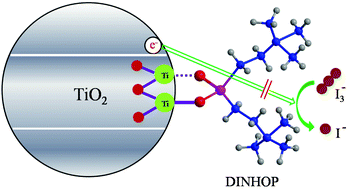Passivation of nanocrystalline TiO2 junctions by surface adsorbed phosphinateamphiphiles enhances the photovoltaic performance of dye sensitized solar cells†
Abstract
We report a new class of molecular insulators that electronically passivate the surface of nanocrystalline

- This article is part of the themed collections: Solar Energy Conversion and Solar energy conversion

 Please wait while we load your content...
Please wait while we load your content...